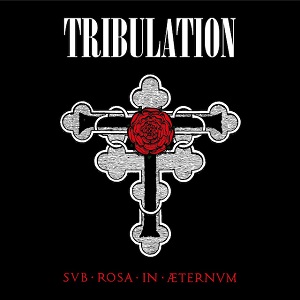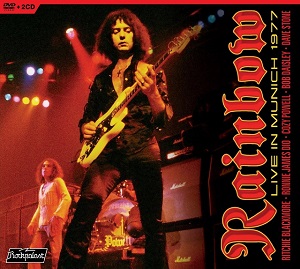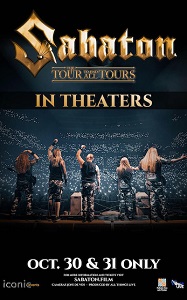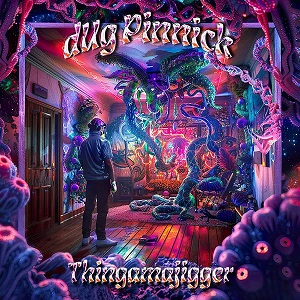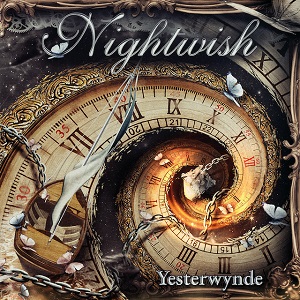JETHRO TULL's Ian Anderson On New Album - "It's Very Much Something That's At The Back Of The List Of Must-Do's"
October 16, 2010, 14 years ago
John Dunphy from Morristown.patch.com spoke with legendary JETHRO TULL frontman Ian Anderson recently about a number of topics. A few excerpts from the chat follow:
Morristown.patch.com: No need to rule out a Jethro Tull album in the future, but not a priority at the moment.
Anderson: "It's very much something that's at the back of the list of must-do's. Certainly doing a Jethro Tull album is a whole lot more difficult than me going into the studio and making something on my own or with the guys who are, geographically, closer to me. Jethro Tull stuff is much, much harder. Our longstanding drummer, Doane Perry, lives in Los Angeles and it's a mighty job to get him over to the UK, and be staying in hotels, rehearsing … It's just an enormous thing which, if you're on the road a lot … He's not, at his age and having a lot of health issues over the years, he's not … I'm sure that he would like to do it, but it would put a lot of pressure on his personal life, his family life, if he was to be adding to his burden of being away from home by coming over to record. And both Doane and Martin Barre have other things they do, in both live performance and recording, and so do the other guys who play with me in my solo band. We all have to kind of fit these things in. People have their projects, plus their family commitments, holidays, school runs. A couple of them are young enough to have school children."
Morristown.patch.com: The music industry, as such, is in a state where artists go out and their primary revenue stream is coming from the live act. You've been at this for quite awhile–have you noticed this change where, at first, it was the band going out to get recognized and buy the album, then the band went out to sell the album because they were already known, and now bands go out because that's where the money is, and the recordings have almost become calling cards.
Anderson: "I think that's a perfectly apt observation, yes. I don't think it's something that's happened in the last year or two. It's something we became aware of 10 years ago, when record sales were universally, according to the record companies, were beginning to drop off quite a bit. And that, of course, during the rise of the digital age has become more cemented as a very strong reality. I think it's something that probably goes back ten years.
There are those bands that, maybe, have to make a big adjustment because they were not live, touring bands. And then bands like Jethro Tull, for example, who have always played live and, for whom, this is not such a great shift, except for the fact that we can see our record sales have dropped away, pretty much in line with the industry standard over the last 10 years. Whilst we have digital sales, because of our catalogue being available digitally for paid downloads, the actual income from those paid downloads is absolutely miniscule; either because we don't actually get that many paid downloads or perhaps because the rate on which we're paid is so incredibly small!
Basically, on a paid download from iTunes, you'll be getting about a quarter of what you would from a physical sale of an album. That's just the artist royalty, the income essentially from record sales; I think you would have to say was half of what it was 10 years ago, perhaps even less than that if you go back 20 years.
All is not lost, because live performance for us has always been, I guess, about 50 percent of our income anyway in all the time through our career, whereas now it's possibly a slightly larger percent. Not a huge amount of difference because the economy, as I'm sure you're aware, has been taking a bit of a pounding throughout the world, particularly in the USA at the moment, lagging behind the slow but resolute recovery in Europe. These days, the US dollar is pretty much the sick man of international currencies; it's starting to fall against the Euro and the pound quite markedly past the last two or three weeks, particularly.
Things don't look a whole lot better because the figures coming out of the USA suggest that not only is recovery much slower, but there's a lot of heartache and wallet-ache on the horizon. Politically, things aren't too good for the Obama administration, in terms of trade figures for the USA. Things look relatively bleak.
Against all the odds, the Euro, which was looking very threatened a few months ago with Greece, Portugal and Ireland looking pretty shaky, has overcome that storm and within two or three weeks has stabilized. The Euro is much the stronger of the major currencies these days.
Those things, I think, are more important rather than the live-or-recorded music debate, because it's essentially about a global economy, particularly one that affects the USA and, to a lesser extent, the UK, and a much lesser extent Europe and the Eurozone economies. Even Russia that are not really a part of the Euro economy, as our next-door neighbors as it were, tend to be doing pretty well. Of course, China and Japan have their ups and downs, but bullish economies in China and India (perhaps are somewhat artificially bullish!) but it's not good news for the American dollar.
You have to take into account the live performance industry, according to promoters, is down about 20 percent this last summer because of the optimistic approaches by people like LiveNation Promotions, resulting in some very, very major losses for that particular company. They must be questioning how they're going to survive into next year if they don't really start pruning the amount of concerts they're doing, and what they're prepared to pay the acts.
You have LiveNation, AEG, and a few independent promoters who are competing. I think they are paying acts too much money in the desperate act of trying to "play a few winning cards at the casino." Casino promotions is a lot like casino banking, in that it's a dangerous pursuit. I think there's got to be a more realistic approach from those who bet on the live performance, the live concert touring industry to start being a little more resolute and not to pay what agents will demand on behalf of their acts."
Read the entire interview here.






